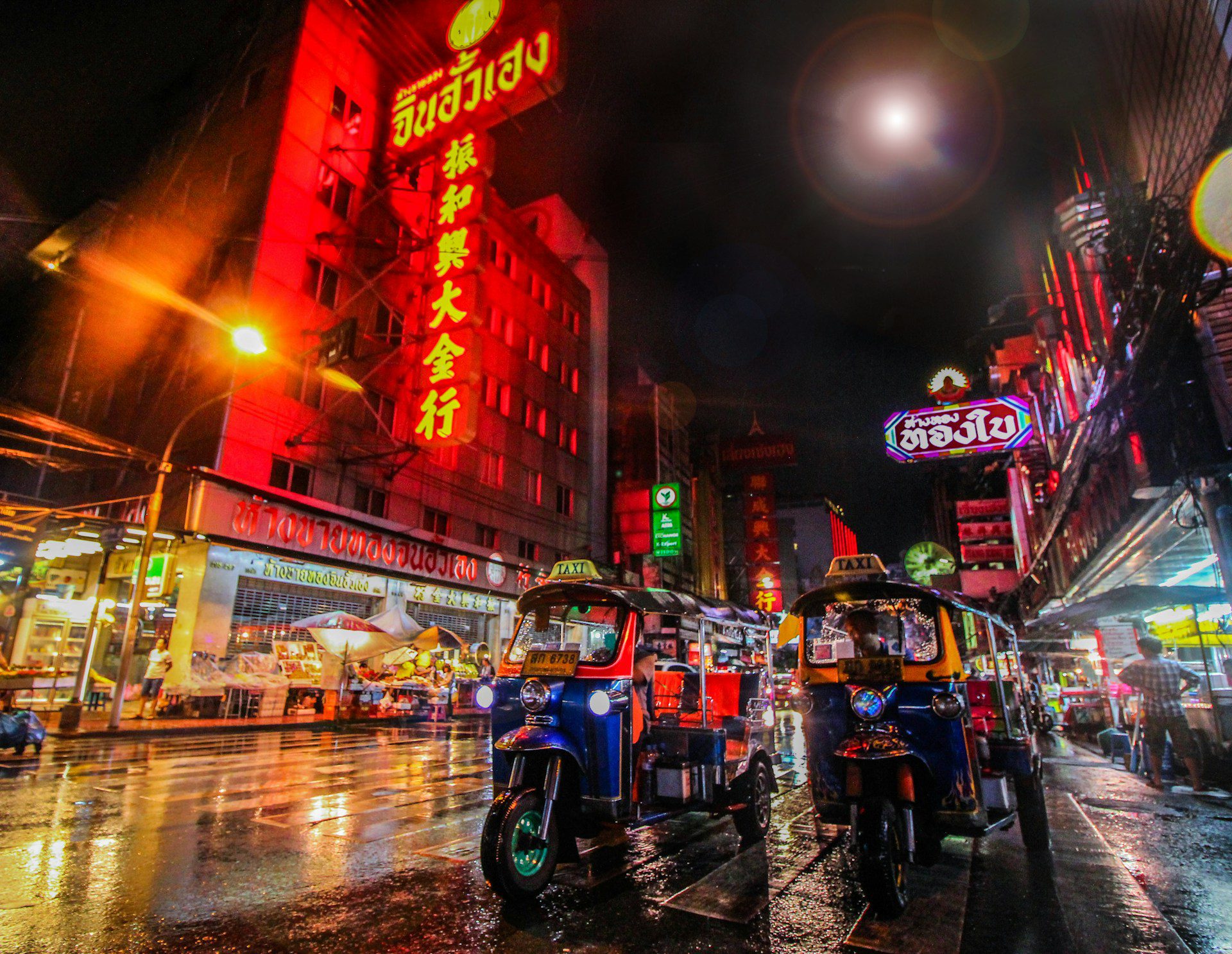PATTAYA, Thailand—The neon-lit red light district screams of sex.
In an apartment near Pattaya’s infamous Walking Street, Auchanaporn Pilasata studies her reflection in the mirror, applies another layer of plum-shade lipstick, and touches up her black eyeliner. In the corner of her mirror are two photographs: one from when she looked like a scrawny 15-year-old boy, and another, post-transition, as the stunning woman she is today.
The 37-year-old, who goes by Anna, has been a transgender sex worker for 17 years. While transitioning, she left a low-paying job in a cosmetics packaging factory on the outskirts of Bangkok to become a cabaret dancer in nearby Pattaya, a beach town with a reputation for wild nightlife. She took a temporary job at a “special” massage parlor to earn some cash. Her very first client propositioned her for sex.
Despite earning billions annually, the industry is effectively illegal, controversial among Thais, and highly stigmatized. Now, the debate over sex work is spilling into public forums, with a progressive lawmaker introducing a bill in parliament to legalize it. Its proponents argue that criminalization has deprived sex workers of basic labor rights and protections enjoyed by other workers, making them more vulnerable to health risks, harassment, exploitation, and violence—while making sex work itself no less visible.
Visiting Thailand and not noticing any sex workers? It’s like going to “KFC and you never see fried chicken,” Anna said.
The majority of sex workers in the world are women, and a 2017 projection by the Thai Department of Disease Control conservatively estimated that 129,000 of 144,000 sex workers in the country were female. But it’s men who make the decisions about what they can do with their bodies.
Women held 16 percent of Thailand’s parliamentary seats in 2021, the same figure as 10 years ago. By comparison, women made up 20 percent of Saudi Arabia’s governing assembly and 28 percent of the U.S. Congress that year.
The fight for legalization is an uphill battle. Conservative factions within the country and global anti-trafficking organizations remain strongly opposed to sex work. The U.S. Agency for International Development calls Thailand a “source, transit, and destination country” for trafficking, and opponents of the bill say the sex industry enables widespread abuse of women and children across the country and in neighboring Cambodia, Laos, and Myanmar.

